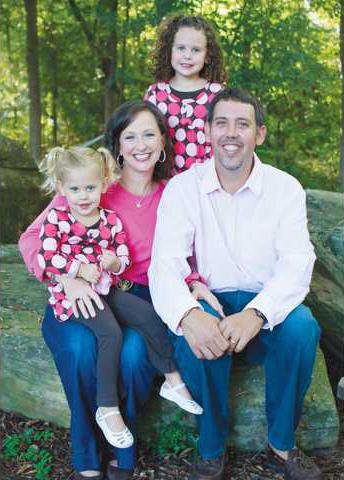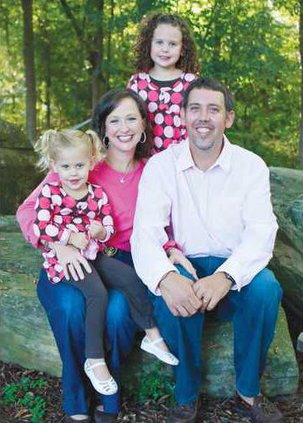Financial Wisdom
To learn more about Jefferson resident Danny Kofke's wealth building tips, visit www.dannykofke.blogspot.com.
The day that shopping enthusiasts look forward to each year — Black Friday — is here.
It's the day when many folks expect to score a bargain and get a jumpstart on their holiday shopping.
While you're perusing the shelves, looking for just the right gift to bring a smile to your loved one's face, many financial experts say you should be just as diligent about making your bank account happy.
"Christmas comes at the same time, but holiday spending gets a lot of people in trouble every year," said Danny Kofke, a Jefferson resident and teacher.
"If you systematically set aside small amounts of cash each month, by the time the holidays roll around, you have the cash to spend on your gifts. When you go out and do your shopping, you spend what you have.
"A lot of people get buyers remorse in January when the credit card bills start coming in, but if you have a set amount to spend before you start shopping, you prevent the remorse."
Kofke knows a thing or two about building responsible spending habits. He's the author of, "A Simple Book of Financial Wisdom: Teach Yourself (and Your Kids) How to Live Wealthy with Little Money." He has also been featured on programs like "The CBS Early Show," "The 700 Club" and "CNN Newsroom."
Although he and his wife, Tracy, have been tempted at times to splurge on holiday spending, Kofke says you have to stay focused on long-term financial prosperity, instead of short-term joy brought by holiday gifts.
"One year, our oldest daughter wanted a Nintendo DS. At that time, they were about $200. We could justify why we should get it for her by saying she'd been doing so well in school, but it just wasn't in the budget for holiday spending," Kofke said.
"We have an emergency fund, but a (gaming system) isn't an emergency. We told her that maybe we could get it for her birthday.
"The interesting thing is that two days after Christmas our heat went out and it was pretty much the same amount to repair as a Nintendo DS. That reinforced for us the importance of having priorities."
Kofke's family have spent nearly a decade honing their "financially frugal" lifestyle.
"We were frugal before frugal was cool. We drove one car for three years. I even rode my bike to work sometimes," Kofke said.
"We didn't go out to eat every night and we were very careful with our money. This was the early 2000s when people were spending like there was no tomorrow. People laughed at us, but we had a goal in mind - for Tracy to stay at home when the time came for us to have children."
Even though both of them were working at the time, the Kofkes practiced living on one salary. They did things like not purchasing a second vehicle until the first one — which Kofke still drives — was paid off and the buy was necessitated by the birth of their first child.
"We were willing to set goals and not worry about what other people thought because we knew we were doing what was right for our family," Kofke said.
He turned the principles they learned during that time period into material for his first book, "How to Survive (and Perhaps Thrive) on a Teacher's Salary." Both of Kofke's books are available through major retailers like Amazon and Barnes & Noble.
One big lesson the couple learned early on was to plan for big purchases.
"That's what gets a lot of people in trouble, impulse shopping for big things," Kofke said.
"We started off the first four years of our marriage paying for things with cash only. Once we had kids, it was a little more difficult, so we switched to using our debit cards, but the principles were already ingrained in us," Kofke said.
"You work hard for your money and for some reason, people have more of an emotional attachment to the green stuff than they do with plastic. When the cash is gone, there's no more spending, so you think twice about what you're buying."
If you'd like to make a fresh financial start in 2012, Kofke says there are some things you can do now to get started on the right foot.
"The No. 1 thing you can do is track your spending. December might be difficult because of the holidays, but walk around with a piece of paper and write down everything you spend," Kofke said.
"At the end of the month, you can analyze how you're spending your money and cut back in areas you may not need. There are two ways to make more money: Get a higher paying job, which is possible but difficult these days, or cutback on what you're spending money on.
"Little day-to-day items can add up fast. Say Monday through Friday, you spend $5 each day on lunch. In a week that's $25. That may not seem like a lot now, but in a year that adds up to $1,300. Who couldn't use $1,300? There's your holiday money right there."

